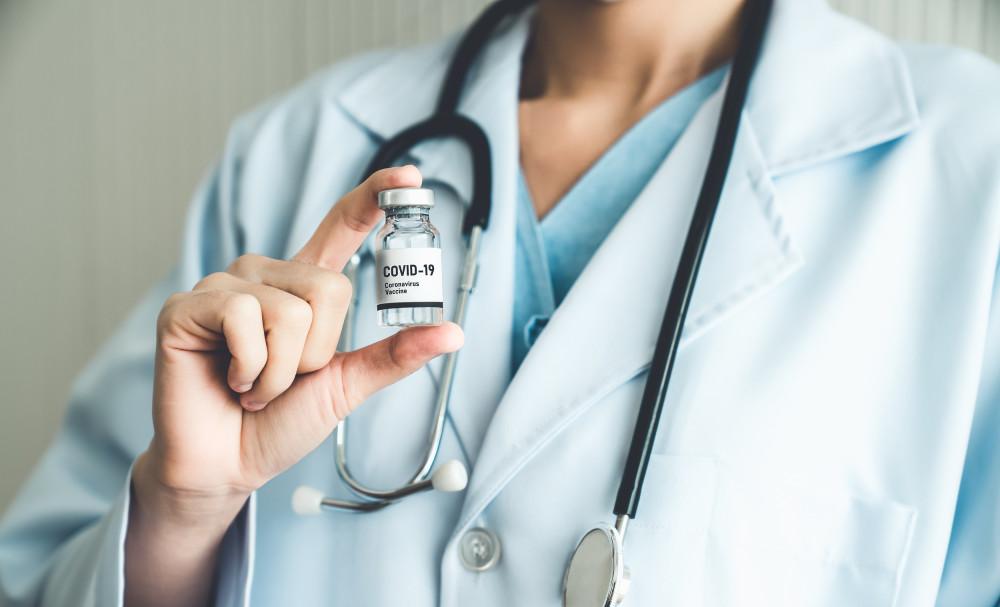Poster design Yu Fei
Exercise is well known for its health benefits, and for people who have been vaccinated against the flu or covid-19, exercise seems to have another added benefit.
According to a recent study from the United States, higher antibody levels were detected in people who exercised after vaccination, and no increase in vaccine side effects was observed.
To have such an effect, the exercise needs to reach a certain length and intensity, the target intensity varies from person to person, just reach the heart rate in a certain period of time.
But at the same time, it must be noted that exercise should be carried out when the physical condition allows, and if there is discomfort and continue to "insist" on it will be counterproductive.

After exercise after vaccination, antibody levels increase
Many people have had the experience of getting the flu or COVID-19 vaccines to fight the virus, but the link between sports and the effectiveness of vaccinations is little understood.
According to the "Runner World" website, a study on this topic was recently published in a medical journal, which pointed out that the subjects exercised after vaccination and observed an increase in antibody levels.
The study was conducted by Professor Marianne Kohut of Iowa State University and her team. For subjects who received the COVID-19 vaccine, the team took blood samples from them before vaccination, two weeks after the first dose, and one week after the second dose.
For the flu vaccine subjects, the team took blood samples from them before, two weeks after and four weeks after vaccination.
Blood test results showed that if the subjects performed a 90-minute continuous running exercise for a short period of time after vaccination, their serum antibody levels would increase.
It is worth mentioning that to achieve such an effect, there are certain requirements in the time and intensity of exercise, requiring the subject's heart rate to reach 60% to 70% of his maximum safe heart rate when running, and 120 to 140 beats per minute in the experiment (the simple calculation of the maximum safe heart rate is 220-age).
And a duration of 90 minutes is also a standard, and those who exercised for 45 minutes did not increase the level of antibodies in the blood sample.
However, in addition to exercise time and heart rate, there is no standard for running distance.
In the subjects, as long as they ran (or even walked) for 90 minutes and met enough heart rate, whether they ran 6 kilometers or 16 kilometers, they could observe the increase in antibody levels.
Exercise requires a dose of force
It must be noted that this experiment only arranged one exercise exercise, and the observation of antibody levels was limited to about four weeks after vaccination, so it only had short-term significance.
Professor Kohut said: "It's interesting that just one exercise after vaccination can have such a noticeable effect on the antibody response. ”
But she also admits that because the experiment is small, with only 78 subjects participating in total, the team believes that the long-term link between exercise and vaccination effects needs more research.
In her view, the connection between the two is very complicated, because exercise brings stimulation to multiple systems of the body, such as the metabolic system, endocrine system, circulatory system, etc. It is still unclear which systems the stimulation of which systems has caused the rise in antibody levels.
But the positive effects of movement can be observed. Previous studies have shown that exercise can enhance the body's anti-inflammatory level and increase the number of active immune cells. As early as 2014, there were studies that suggested that a sports-loving lifestyle might make the body respond better to vaccines.
But one key factor cannot be ignored: that is, exercise requires doing what it can.
The exercise in this experiment was described by the team as "light to moderate intensity exercise", and the subjects were people who had daily exercise habits.
Professor Kaughot reminded that for people without exercise habits, whether the same practice will have the same effect, or even bring health risks, remains to be determined.
Therefore, after vaccination, you need to carefully monitor your condition - if you have fever, dizziness, fatigue, fatigue and any other discomfort, you need to rest adequately, otherwise forcibly "challenging yourself" may have negative consequences.